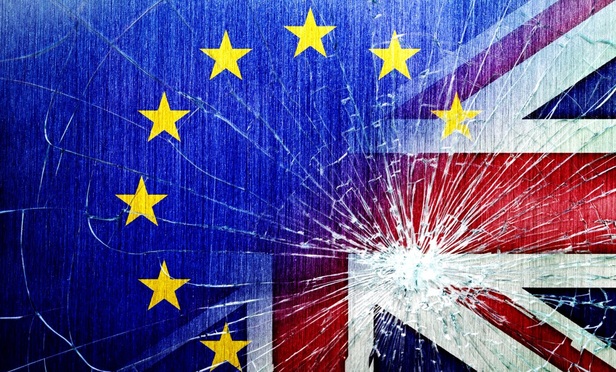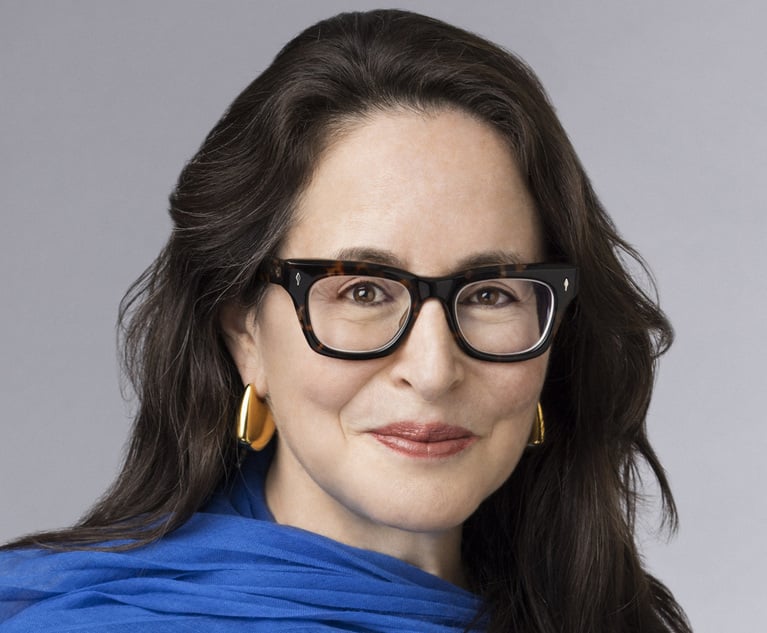Top UK firms could lose out on Brexit trade work as they meet government officials to discuss City's future
Top UK firms discuss implications of Brexit for financial services with Treasury but could miss out on international trade work to US rivals
July 19, 2016 at 08:44 AM
5 minute read
The original version of this story was published on Law.com
 Senior City partners say that UK firms lack the expertise to supply the UK government with lawyers to help negotiate new trade deals following the UK's vote to leave the European Union (EU).
Senior City partners say that UK firms lack the expertise to supply the UK government with lawyers to help negotiate new trade deals following the UK's vote to leave the European Union (EU).
One magic circle partner says: "What will be highly in demand are experts in trade law and that is something most UK law firms do not really have."
In order to negotiate the rash of trade deals the UK needs when it exits the EU, the government has turned to the private sector, including leading accountants, consultants and law firms, to supply people with the expertise needed to make these deals.
US and international firms have traditionally led the way in this area, with firms such as Mayer Brown, Sidley Austin, White & Case, Dentons and Baker & McKenzie boasting large and experienced teams of international trade lawyers, typically concentrated in Washington DC and Brussels.
In contrast, very few top UK firms have much of a track record in advising on international trade agreements though some have trade experts in their competition practices. Chambers & Partners' ranking of law firms' trade practices is dominated by international firms, though Hogan Lovells, Fieldfisher and Holman Fenwick Willan do also feature.
Miriam Gonzalez, an international trade partner at Dechert, says: "Top UK firms are really short of EU internal market and bilateral trade negotiation experts; it is just something they have never paid enough attention to."
An international trade partner at a global law firm agrees and notes that: "We did a case last year with one of the magic circle firms and they had to engage a barrister with expertise in World Trade Organisation (WTO) law to help them."
"The UK has not led any trade negotiations for four decades."
One of the reasons behind the lack of domestic experts is that the EU has exclusive competence to handle trade matters, including trade negotiations, on behalf of the 28 member states.
"The UK has not led any trade negotiations for four decades," says Hogan Lovells Brussels trade partner Lourdes Catrain. "In my view, the UK government could benefit from legal and practical advice and support from firms with a strong track record in this area."
Unlike most UK firms, Hogan Lovells has a WTO team, which includes former EU and US trade negotiators.
Of the magic circle, Clifford Chance (CC) had the most developed WTO practice, but its lead practitioner, Peter Morrison, returned to the WTO in 1999 and was never replaced.
"The Canadian government has 50 plus trade lawyers that fly around the world negotiating deals. It has been doing that since the early 1990s. The UK has nothing like that."
US and international firms with developed trade practices are therefore poised to hoover up the trade work thrown up by the UK's vote to leave the EU.
A trade partner at an international firm says that it would be "like throwing the lambs to the wolves" if the UK were to approach trade negotiations without the required expertise.
Brendan McGivern, head of White & Case's WTO practice and formerly an in-house trade lawyer for the Canadian government, says the UK faces a "significant challenge" and that it is "going to be tough".
"The Canadian government has 50 plus trade lawyers that fly around the world negotiating deals. It has been doing that since the early 1990s. The UK has nothing like that."
Canada is currently negotiating a Comprehensive Economic and Trade Agreement (Ceta) with the EU which has been in the making for seven years.
McGivern, who is based in Geneva, adds that he expects the UK government to hire some British trade lawyers working for the European Commission, but that there are not enough of them to meet requirements. "It is going to have to hire some outside counsel to deal with immediate deadlines, presumably from law firms with offices in Brussels, Geneva and Washington."
Another trade partner says: "If the government is going to look at hiring outside counsel, hopefully they will look for the best offer they can get in the market and I don't think that would be from a magic circle firm."
Magic circle meets Treasury
However, UK firms are well placed to advise on the myriad of other issues facing industries in the light of the Brexit vote, and it is understood that representatives of leading UK firms met with a representative of HM Treasury last week to discuss the implications of Brexit for the UK's financial sector.
It is understood that the meeting, which was convened by the City of London corporation, was attended by representatives from firms including CC, Slaughter and May, Freshfields Bruckhaus Deringer, Linklaters, Allen & Overy, Simmons & Simmons and Pinsent Masons, as well as a representative from HM Treasury.
The purpose of the meeting was to ask law firms for their views on the market in the wake of Brexit, rather than requesting legal advice.
One source close to the meeting says: "It was more about just airing the issues than going off and doing some work."
Another adds: "They're not seeking legal advice. They wanted our reactions to Brexit and to learn about trends in the market and how financial institution clients are affected."
In addition, The Sunday Times reported that two Linklaters partners have been seconded to the newly created Brexit department in Whitehall.
This content has been archived. It is available through our partners, LexisNexis® and Bloomberg Law.
To view this content, please continue to their sites.
Not a Lexis Subscriber?
Subscribe Now
Not a Bloomberg Law Subscriber?
Subscribe Now
NOT FOR REPRINT
© 2025 ALM Global, LLC, All Rights Reserved. Request academic re-use from www.copyright.com. All other uses, submit a request to [email protected]. For more information visit Asset & Logo Licensing.
You Might Like
View All
Morgan Lewis Shutters Shenzhen Office Less Than Two Years After Launch


University of Chicago Accused of Evicting Student for Attending Gaza-Israel Protest
3 minute read
State Appellate Court Rejects Reasoning for Attorney's Removal From Conservatorship
5 minute readTrending Stories
- 1'A Death Sentence for TikTok'?: Litigators and Experts Weigh Impact of Potential Ban on Creators and Data Privacy
- 2Bribery Case Against Former Lt. Gov. Brian Benjamin Is Dropped
- 3‘Extremely Disturbing’: AI Firms Face Class Action by ‘Taskers’ Exposed to Traumatic Content
- 4State Appeals Court Revives BraunHagey Lawsuit Alleging $4.2M Unlawful Wire to China
- 5Invoking Trump, AG Bonta Reminds Lawyers of Duties to Noncitizens in Plea Dealing
Who Got The Work
J. Brugh Lower of Gibbons has entered an appearance for industrial equipment supplier Devco Corporation in a pending trademark infringement lawsuit. The suit, accusing the defendant of selling knock-off Graco products, was filed Dec. 18 in New Jersey District Court by Rivkin Radler on behalf of Graco Inc. and Graco Minnesota. The case, assigned to U.S. District Judge Zahid N. Quraishi, is 3:24-cv-11294, Graco Inc. et al v. Devco Corporation.
Who Got The Work
Rebecca Maller-Stein and Kent A. Yalowitz of Arnold & Porter Kaye Scholer have entered their appearances for Hanaco Venture Capital and its executives, Lior Prosor and David Frankel, in a pending securities lawsuit. The action, filed on Dec. 24 in New York Southern District Court by Zell, Aron & Co. on behalf of Goldeneye Advisors, accuses the defendants of negligently and fraudulently managing the plaintiff's $1 million investment. The case, assigned to U.S. District Judge Vernon S. Broderick, is 1:24-cv-09918, Goldeneye Advisors, LLC v. Hanaco Venture Capital, Ltd. et al.
Who Got The Work
Attorneys from A&O Shearman has stepped in as defense counsel for Toronto-Dominion Bank and other defendants in a pending securities class action. The suit, filed Dec. 11 in New York Southern District Court by Bleichmar Fonti & Auld, accuses the defendants of concealing the bank's 'pervasive' deficiencies in regards to its compliance with the Bank Secrecy Act and the quality of its anti-money laundering controls. The case, assigned to U.S. District Judge Arun Subramanian, is 1:24-cv-09445, Gonzalez v. The Toronto-Dominion Bank et al.
Who Got The Work
Crown Castle International, a Pennsylvania company providing shared communications infrastructure, has turned to Luke D. Wolf of Gordon Rees Scully Mansukhani to fend off a pending breach-of-contract lawsuit. The court action, filed Nov. 25 in Michigan Eastern District Court by Hooper Hathaway PC on behalf of The Town Residences LLC, accuses Crown Castle of failing to transfer approximately $30,000 in utility payments from T-Mobile in breach of a roof-top lease and assignment agreement. The case, assigned to U.S. District Judge Susan K. Declercq, is 2:24-cv-13131, The Town Residences LLC v. T-Mobile US, Inc. et al.
Who Got The Work
Wilfred P. Coronato and Daniel M. Schwartz of McCarter & English have stepped in as defense counsel to Electrolux Home Products Inc. in a pending product liability lawsuit. The court action, filed Nov. 26 in New York Eastern District Court by Poulos Lopiccolo PC and Nagel Rice LLP on behalf of David Stern, alleges that the defendant's refrigerators’ drawers and shelving repeatedly break and fall apart within months after purchase. The case, assigned to U.S. District Judge Joan M. Azrack, is 2:24-cv-08204, Stern v. Electrolux Home Products, Inc.
Featured Firms
Law Offices of Gary Martin Hays & Associates, P.C.
(470) 294-1674
Law Offices of Mark E. Salomone
(857) 444-6468
Smith & Hassler
(713) 739-1250








